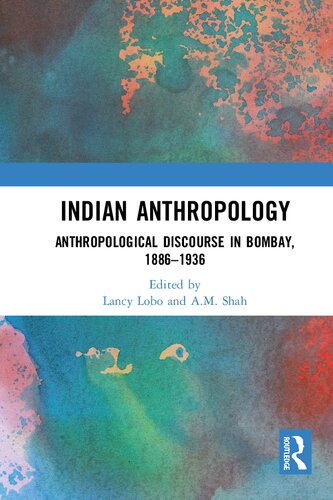

Most ebook files are in PDF format, so you can easily read them using various software such as Foxit Reader or directly on the Google Chrome browser.
Some ebook files are released by publishers in other formats such as .awz, .mobi, .epub, .fb2, etc. You may need to install specific software to read these formats on mobile/PC, such as Calibre.
Please read the tutorial at this link: https://ebookbell.com/faq
We offer FREE conversion to the popular formats you request; however, this may take some time. Therefore, right after payment, please email us, and we will try to provide the service as quickly as possible.
For some exceptional file formats or broken links (if any), please refrain from opening any disputes. Instead, email us first, and we will try to assist within a maximum of 6 hours.
EbookBell Team

4.3
78 reviewsIndian Anthropology: Anthropological Discourse in Bombay 1886–1936 is an important contribution to the history of Indian anthropology, focusing on its formative period. It looks at the political economy of knowledge production and the anthropological discourse in Bombay during the late nineteenth century. This seminal volume highlights the much forgotten and ignored contribution of the Bombay Presidency anthropologists, many of whom were Indians, from different backgrounds, such as lawyers, civil servants, and men of religion, much before professional anthropology was taught in India. The other contributions are by pioneers from Bengal, Punjab, and United Provinces ― all British administrators turned scholars.
This volume is divided into three parts: Part I deals with the six contributions on the history of the development of anthropology in India; Part II deals with four contributions on the methodology and collecting ethnographic data; and Part III deals with four contributions on theoretical analysis of ethnographic facts. The roots of many contemporary conflicts and social issues can be traced to this formative period of anthropology in India.
This book will be useful to students and researchers of anthropology, sociology, public administration, modern history, and demography. It will also be of interest to civil servants, students of history, Indian culture and society, religions, colonial history, law, and South Asia studies.